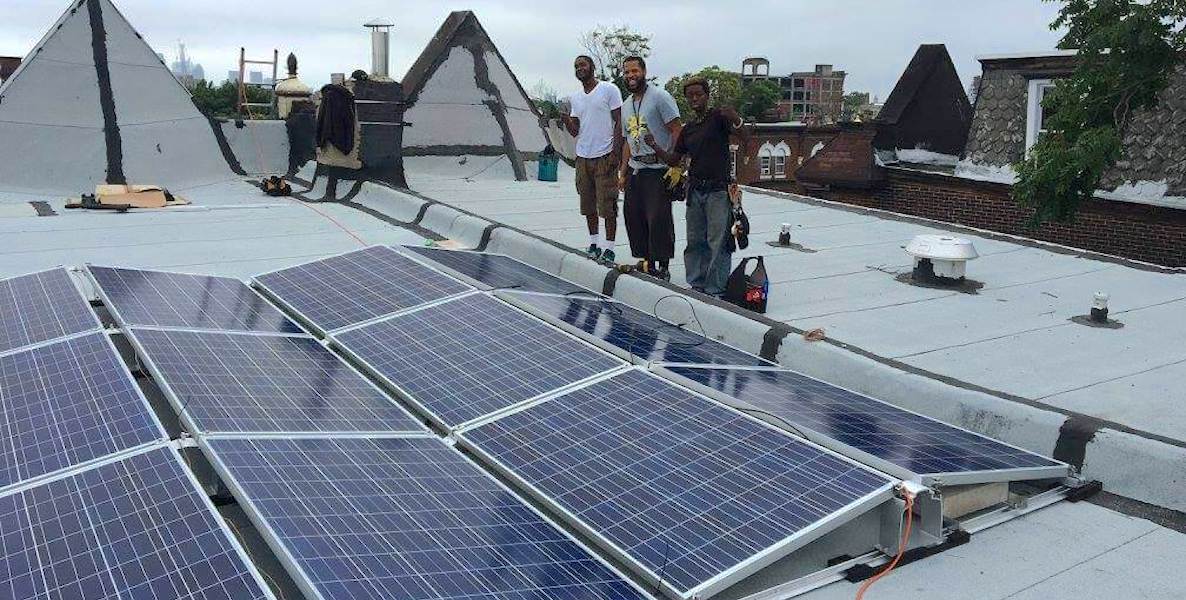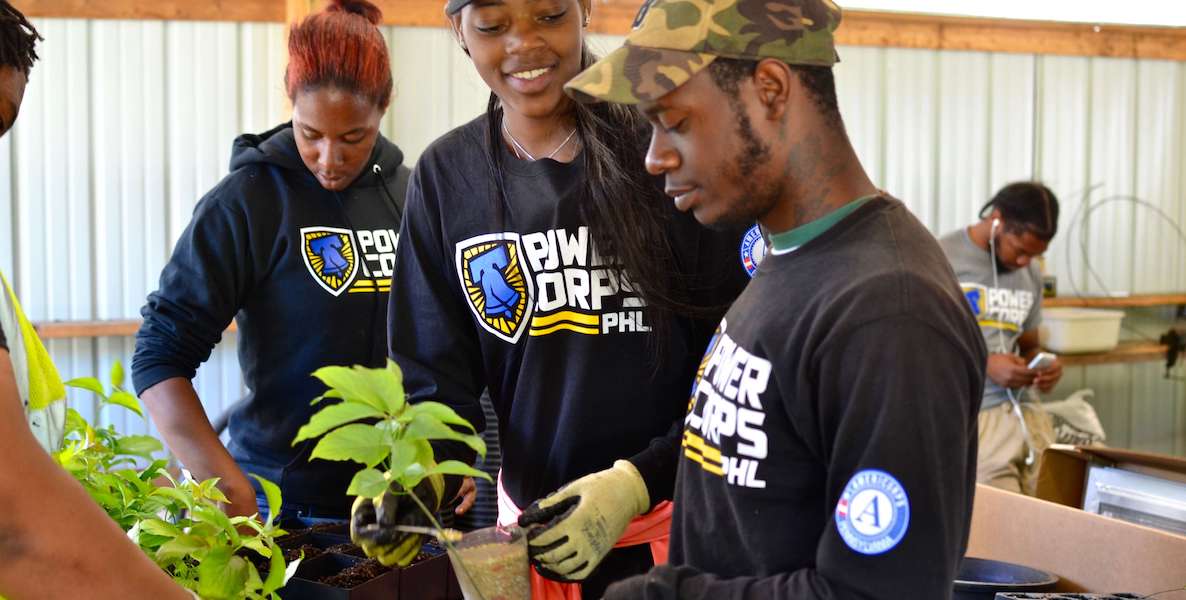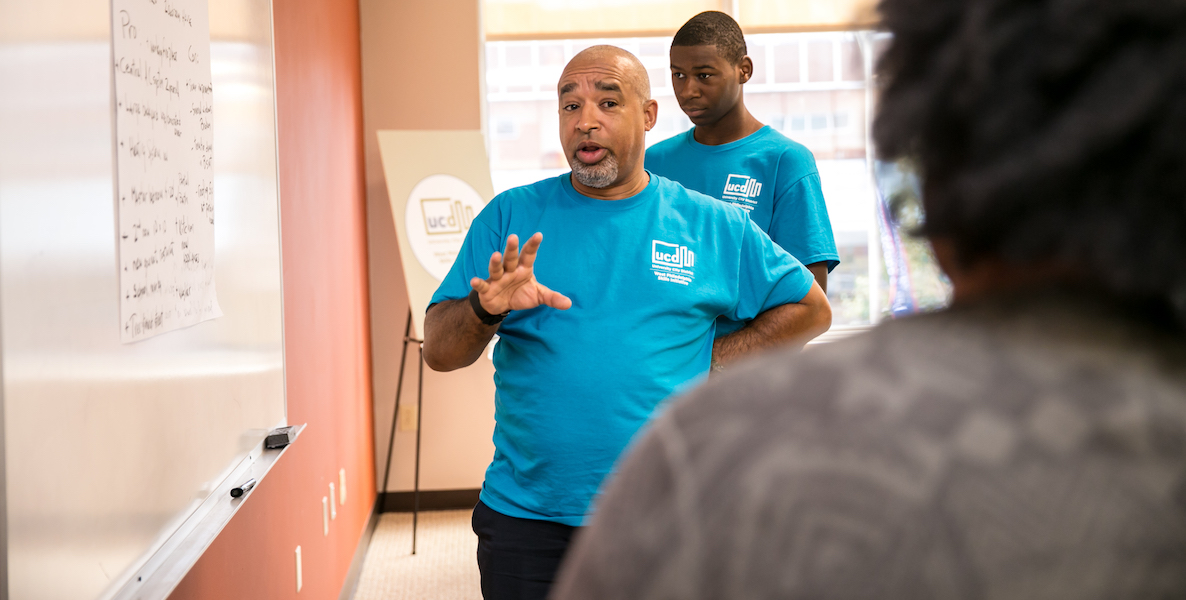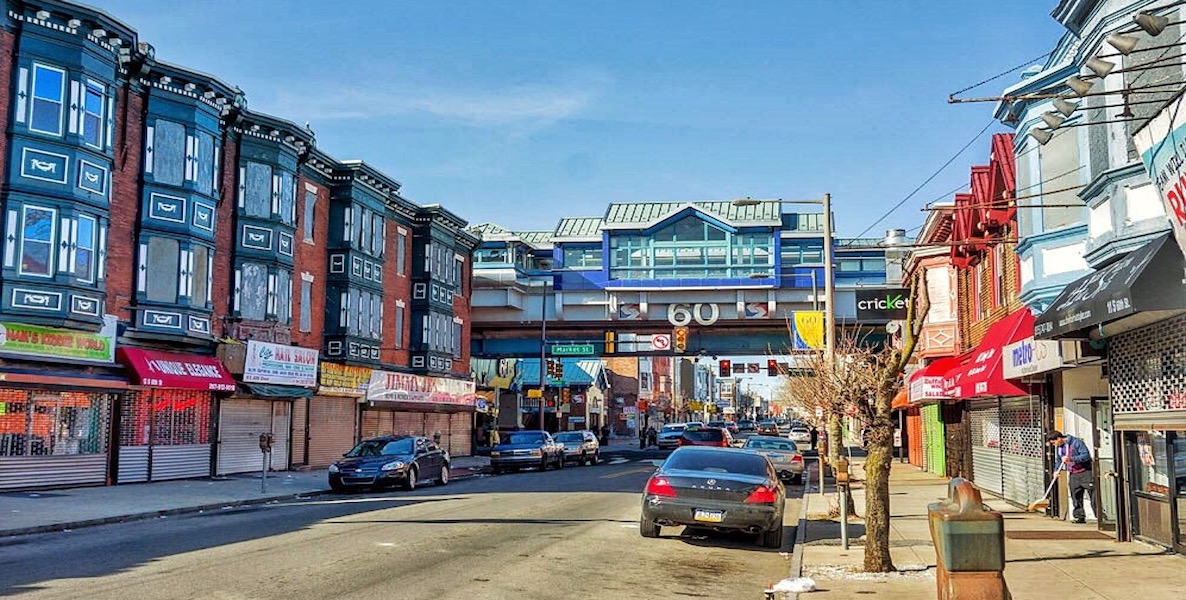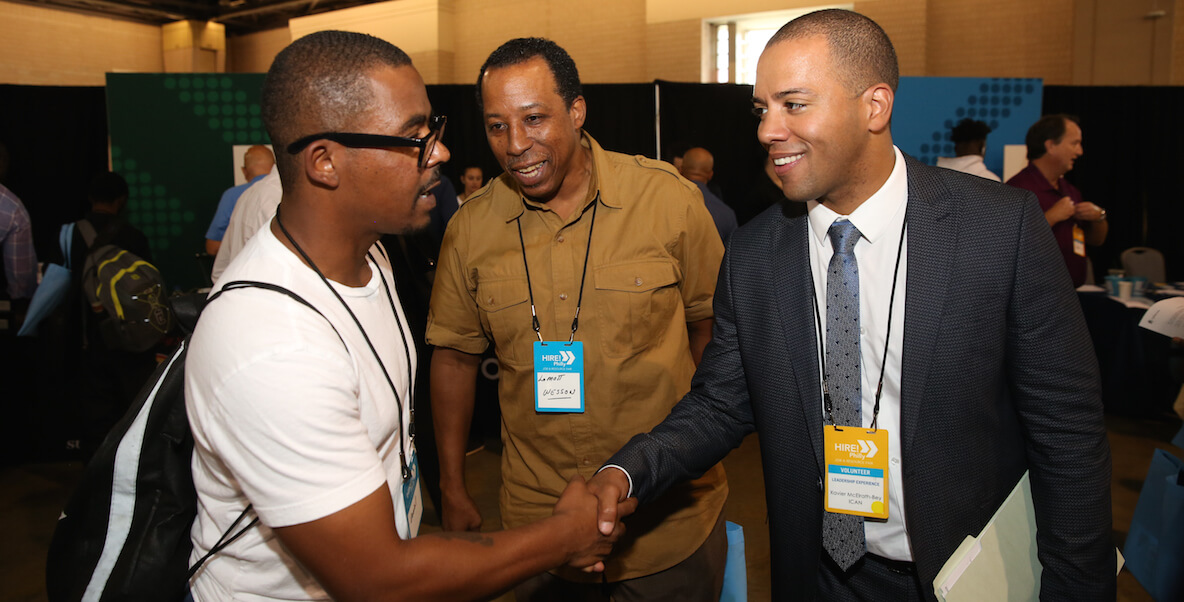Kathryn Epps Roberson isn’t a lifelong Philadelphia native — she grew up in Boston and went to school at Howard University — but over the 12 or so years she’s lived here, she’s fallen in love with her adopted hometown. (It’s the food, she says. And the people. And the diversity. And the location…). It’s where she’s planted roots, and where she’s built her business: Her experiential marketing consulting firm, AEC Partners, has worked with lots of heavy hitters over the years, from the City of Philadelphia to the PIDC, Ketel One Vodka, Brandywine Realty Trust and more.
Still, she says, she wanted to do more.
“With my business, I’ve been fortunate enough to work on campaigns and projects with some positive impact,” she says. “But I still had this desire to have more of a direct impact, to somehow use my talents and knowledge and resources to do good in the city.”
There are thousands of jobs listed from regional employers in various fields, from a full-time retail position with a 401K plan, to a truck-driving job with training and an app-development post for degreed computer scientists.
For years, she says, there wasn’t a clear pathway toward satisfying that desire. And then, a couple years back, along came Hire! Philly, an employer-led workforce development organization that felt like an answer to Roberson’s quest.
Today, she’s the group’s executive director and also the driving force behind its new project, PropelPHL, an interactive digital platform aiming to change the jobs landscape in Philly by match-making employers with specific needs with workers who have the right skills and talents; and connecting job-seekers with training and resources they need to get the well-paying employment they want.
The site already has thousands of job listings, and has garnered support (and funding) from the City, corporations, and philanthropies.
So: Not too shabby, as far as projects with potential for impact go.
It all started with Starbucks (yes, Starbucks)
A bit of background here: When Hire! Philly launched in 2018, it was not as a workforce development organization, but as a jobs fair spearheaded and underwritten by Starbucks. (Yes, Starbucks.)
The fair was a response of sorts to the racist incident we all remember from that summer at the Rittenhouse coffee shop: the coffee giant, grappling in the aftermath of the event that sparked a national conversation about race and equity, met with Philly leaders across industries to best understand how the company might engage and invest in the city in a meaningful way. One central theme kept popping up: Workforce development. As in, connecting people in Philly and the region to decent jobs.
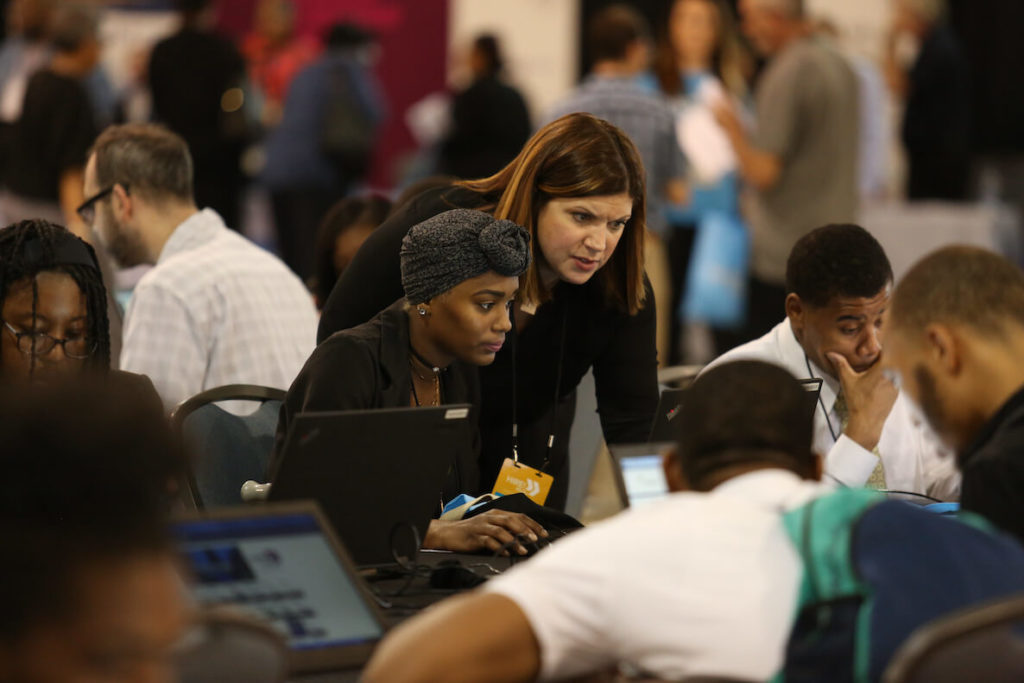
That this issue was top of mind for so many is no surprise in a city with a 25 percent poverty rate, where jobless rates are consistently higher than the U.S. average, even before Covid, where minorities bear so much of these burdens and where employers often bemoan the workforce training pipeline. (That this issue was top of mind for Roberson, too, is also maybe no surprise and possibly in her DNA: Her dad is former City Commerce Director, Harold T. Epps.)
And so it was that Starbucks launched a large-scale career and resource fair that brought together some 40 employers and a host of other job-centered experiences at the Convention Center. It was a hit: About 1,700 “opportunity seekers” attended; 1,025 were offered interviews onsite. Also? More than 100 people got conditional job offers; 450 were connected to training or development programs; 68 worked with a LinkedIn Coach for a profile consult; 25 got immigration consultations for workforce needs.
MORE ON EQUITABLE JOB CREATION IN PHILADELPHIA
The event was such a success, in fact, that it was clear to those involved that Hire! Philly should not just be a one-time event, but an ongoing effort to consistently bring together this type of “workforce ecosystem” with job-seekers, job-offerers, and the sorts of “middleman” resources that often connect the two. So Starbucks, Jefferson, PNC, Aramark and PECO created an advisory board and hired Roberson as the director who would grow this from an event into Hire! Philly, the organization.
Roberson got rolling in her post in June of 2019. Of course, then came Covid, with its crippling blow to our workforce. Unemployment had shot up seven points by this past April, to 12.2 percent, the third worst in the country; by the end of May, it was 7.8 percent, according to the Inky — better, but still noticeably higher than it was pre-pandemic, and higher than most of the rest of the country. This on top of what was already anemic job growth pre-pandemic, with most new jobs paying in the $35,000 range — barely a living wage.
The pandemic didn’t just change the jobs landscape, it also shifted the Hire! Philly game plan. Efforts to connect people had to move online, and — at least initially — focus on the estimated 600,000 Philadelphians who were displaced from the workforce during the pandemic.
As of July, after months of planning, designing and coalescing stakeholders, that online connector — PropelPHL — is live. And even in its very early stages, it feels like an antidote to the city’s tendency to silo its many workforce development (and anti-poverty, and pro-growth) efforts.
Like a dating app for jobs
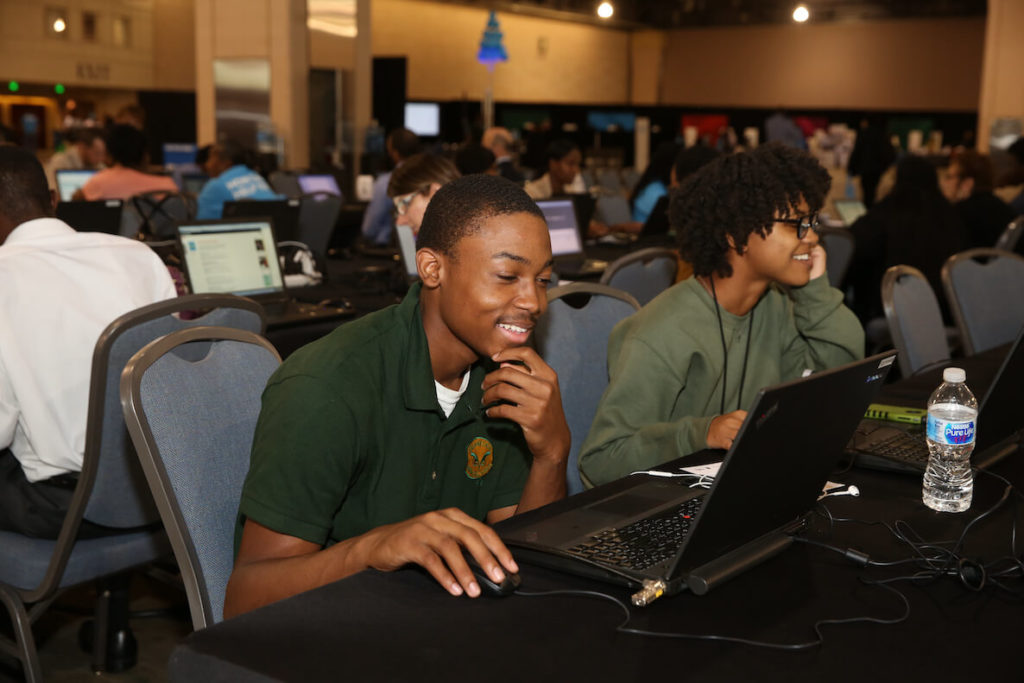
Here’s how it works: Employers in the nine-county scope of the site work through PropelPHL to post jobs and their necessary skills, as well as informative “employer profile” pages (“like mini-websites,” Roberson says) visible to registered users, in hopes of gathering motivated, qualified candidates.
Job-seekers, meantime, answer a questionnaire about themselves (background, skills, preferences, zip code, and so forth — uploading a resume is strictly optional). Then, the software makes matches based on skills, backgrounds and talents listed in the questionnaire, and queues them up for the job-seeker to peruse. The results are weighted, meaning that the ones that are the best matches appear at the top of the list.
Hm. Doesn’t this algorithm feel sort of … familiar?
“Yes,” Roberson says with a laugh. “It’s very much like a dating app. So your best matches get pushed to you, with jobs that the data says are a good match for your skills.” But, she adds, you can also just search the site for featured jobs and the constantly updating job feed on the site, “and just see what’s out there!”
“It’s very much like a dating app. So your best matches get pushed to you, with jobs that the data says are a good match for your skills,” Roberson says.
Roberson estimates that there are 25 employers involved right now, including Verizon, U-Haul and Starbucks. Beyond that, there’s also thousands of jobs listed from other regional employers in various fields, from a full-time retail position with a 401K plan, to a truck-driving job with training and an app-development post for degreed computer scientists. The range of jobs is as key as the workforce development resources, Roberson says, reaching people wherever they are on their journey to employment.
The platform is free for all users, funded by the Lenfest Foundation, PECO, City Council and Starbucks. From PECO’s perspective, says Romona Riscoe Benson, the company’s director of corporate and community relations, the platform boosts their own internal efforts at workforce development through things like training programs and apprenticeships. PropelPHL allows them to connect with more potential employees and trainees, to link up with “a diverse pool of talented and skilled individuals looking to either enter or re-enter this industry, and that’s extremely valuable to the work we do,” she says.
To Benson’s point, the platform could be a boon for companies’ diversity efforts, as it helps them expand their usual circles to see talent they might otherwise miss due to smaller applicant pools, status-quo networking, and software algorithms that boot great candidates out of the system simply because of a missing keyword on a resume, or a lack of a college degree.
In fact, because the platform tracks and analyzes data, Roberson says, they can use it to deeply analyze who is and is not applying for, and finding jobs, on the site—like populations from certain zip codes, for example. And then they can work with employers to better position themselves, or to do better outreach to communities that are underrepresented.
Next month, PropelPHL will launch a plank that will allow job seekers to explore things like industry pay scale norms, the culture of different companies, what’s required versus just what’s “nice” in terms of education, and more of the type of insights that “empower the job seekers to evaluate the employers just as much as the other way around,” Roberson says.
 Right now, there’s a host of other perks for job-seekers, including listings for all sorts of training programs, from automotive proficiency certificate programs at Community College of Philadelphia, to hospitality training at the Philadelphia Opportunities Industrialization Center (OIC). As the platform grows, Roberson says, the plan is to have a highly-tailored, responsive system that links your matched jobs to whatever training gaps you might have for those jobs, and then shows you exactly where and how to fill in those gaps.
Right now, there’s a host of other perks for job-seekers, including listings for all sorts of training programs, from automotive proficiency certificate programs at Community College of Philadelphia, to hospitality training at the Philadelphia Opportunities Industrialization Center (OIC). As the platform grows, Roberson says, the plan is to have a highly-tailored, responsive system that links your matched jobs to whatever training gaps you might have for those jobs, and then shows you exactly where and how to fill in those gaps.
For now, job seekers can request a “case manager”, a job-placement professional from one of the partnering community organizations. (Think: the Urban League of Philadelphia, or the Community College of Philadelphia, or First Step Staffing.) Hire! Philly, the intermediary, makes the connection, and voila: Job-seeker gets job-seeking advisor.
These same partners who work directly with job seekers are also currently in the process of migrating their participants onto the platform. Meantime these organizations’ own pages on the site can pull in citizens who weren’t previously aware of their services, a big virtuous workforce cycle.
“This is something we want to do for the long term, to change the workforce development model for good, and to challenge the status quo, and to set us up post-Covid so that we’re operating better than we did before,” Roberson says.
As the platform ramps up, Roberson says, the core focus is onboarding those thousands of job-seekers from community partners, spreading the word, and trying to mitigate some of the damage Covid wrought. The long-term plan includes phasing in more community colleges and workforce development programs to create more youth-focused pipelines to careers, followed by a phase focused on matching up military veterans with civilian jobs and returning citizens with training, resources and career pathways. Then comes a final phase introducing portals that offer more information on industry-based news, internships, job opportunities, and so forth.
More immediately? They’re also taking on the access issues that might otherwise limit PropelPHL’s reach with their “PropelPHL Points,” brick-and-mortar locations (think: Free Library outposts, community centers) set up for people to come and use the platform, and even get questions answered and help in person.
Roberson, for her part, says she’s thrilled to be at this point in the game with a live site up and running. It’s been a year in the making. (Longer, really, if you consider how many years the city could have used a resource like this.) And it’s exciting, she says, to see that an idea that began as a Covid pivot is growing into something much more, gaining speed to “do its thing” on a daily basis.
“This is something we want to do for the long term, to change the workforce development model for good, and to challenge the status quo, and to set us up post-Covid so that we’re operating better than we did before,” she says.
The Citizen is one of 20 news organizations producing Broke in Philly, a collaborative reporting project on solutions to poverty and the city’s push towards economic mobility. Follow the project on Twitter @BrokeInPhilly.
Correction: A previous version of this story misspelled Kathryn Epps Roberson’s last name.

RELATED
Header photo courtesy of Hire! Philly



